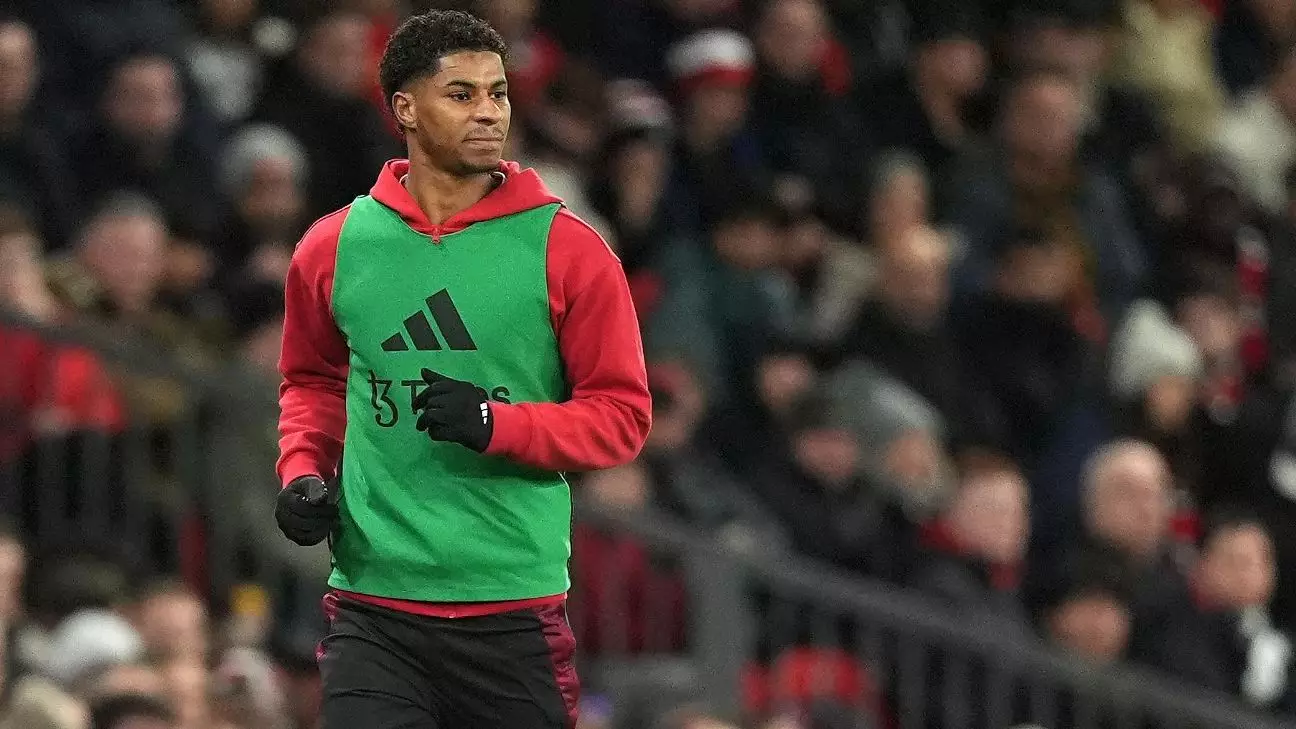The recent transfer of Marcus Rashford from Manchester United to Aston Villa on loan has sparked discussions regarding the inner workings of team dynamics and coaching philosophies. Ruben Amorim, the head coach of Manchester United, has not held back in expressing that his inability to connect with Rashford was a significant factor leading to the forward’s departure. While the narrative surrounding player transfers often centers around performance and tactical alignment, the psychological aspects of such decisions can be just as impactful.
Amorim’s assertion that he could not instill his vision in Rashford shines a light on a common issue in football: the disconnect that can occur between coach and player. This situation is particularly salient given Rashford’s proven track record of success under different coaching regimes. It begs the question—how does one of England’s top talents suddenly become ill-suited for a particular coach’s vision? Amorim’s comments suggest a deeper issue extending beyond mere tactical mismatches, highlighting the complexity of personnel decisions in football.
Rashford’s journey with United under Amorim began with promise, featuring in crucial matches and even scoring the first goal of Amorim’s tenure. However, things quickly soured, leading to his exclusion from critical matches, including the high-profile Manchester derby, which ultimately culminated in a loan move to Villa Park. The fall from grace for a player of Rashford’s caliber raises eyebrows, illustrating how rapid the shift in fortunes can be in the sport.
Amorim’s statement reveals a coaching philosophy that requires complete buy-in from players to succeed. He acknowledged that not every player adapts to his style; it’s a sentiment echoed in football history, where player-coach compatibility can be as vital as skill level. This raises intriguing questions about player development and management: what happens when a talented player cannot reconcile their approach with that of their coach? It can lead to situations that some may view as forced exits—an uncomfortable reality of professional sports.
The Future for Both Parties
Despite the current separation, Amorim has expressed his best wishes for Rashford and his new chapter at Aston Villa, hoping that he can establish a fruitful partnership with manager Unai Emery. This goodwill reflects the complexities of modern professional relationships where mutual respect can carry on, despite built-up tensions.
For Rashford, the move to Villa Park provides an opportunity to rejuvenate his career, potentially flourishing under a new system that values his particular skill set. This gives the impression of an eventual mutual benefit; Amorim can build a squad that fits his tactical blueprint, while Rashford can rediscover his form and assert his position as a crucial player within a team willing to embrace his style of play.
One of the more candid moments from Amorim came when he discussed the decision to keep former United player Ruud van Nistelrooy as a potential staff member. Choosing instead to maintain a “clean break,” Amorim emphasized that he had to prioritize his team’s cohesion and structure over the allure of a popular choice. The importance of this decision resonates with the dilemmas many managers face when stepping into complex team environments.
It raises the significance of maintaining clear lines of communication. For Amorim, being upfront about his plans and expectations likely prevented equivocation that could have further disrupted the team’s dynamics. His unwavering commitment to his coaching philosophy, even when it meant making hard decisions, highlights an aspect of leadership that is often overlooked: the courage to stand firm in one’s principles for the greater good of the team.
In observing this episode surrounding Marcus Rashford’s loan and Ruben Amorim’s tenure, we gain insight into the multifaceted nature of team sports. Success is not solely determined by talent and strategy; it also heavily relies on the empathetic connections formed between players and coaches. As fans, we can only hope both Amorim and Rashford find fulfillment in their respective journeys onward, embodying the essence of resilience that defines top-tier football.

